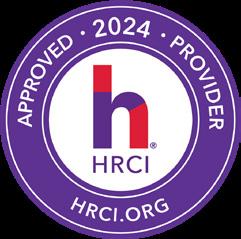






The U.S. Supreme Court decided two cases about when public officials may delete comments or block users on social media. The cases are O’Connor-Ratcliff v. Garnier, involving Trustees of the Poway Unified School District near San Diego, and Lindke v. Freed, involving a City Manager in Michigan. In November 2023, before the Supreme Court issued its decision, LCW published a blog post that describes the facts of the cases and the parties’ arguments. That blog post can be found here.
In O’Connor-Ratcliff v. Garnier, Michelle O’ConnorRatcliff and T.J. Zane (Trustees) created public Facebook profile pages to promote their campaigns for election to the Poway Unified School District Board of Trustees. After they won election, the Trustees continued to use their public pages to post District-related content. The Facebook pages described the Trustees as “Government Official[s]” and listed their official positions. Christopher and Kimberly Garnier had children who attended District schools, and the Garniers often criticized the Board of Trustees. They posted lengthy and repetitive comments on the Trustees’ social media posts. The Trustees deleted the Garniers’ comments and eventually blocked them from commenting altogether.
The Garniers sued the Trustees under 42 U.S.C. section 1983, alleging the Trustees violated their First Amendment rights to free speech by deleting their comments and blocking them from commenting further. Section 1983 allows individuals to sue public employees and others acting “under color of any statute, ordinance, regulation, custom, or usage” who deprive them of their
Constitutional or legal “rights, privileges, or immunities.” The Trustees argued that they were acting as private individuals, not as state actors, so they were not liable for violating section 1983. The Ninth Circuit held that the Trustees were engaged in state action because the “appearance and content” of their Facebook pages appeared official.
On March 15, 2024, the U.S. Supreme Court issued its decisions in both the O’Connor-Ratcliff case and the Lindke case. The Court explained in the Lindkedecision its rule for state action under these circumstances. In the O’Connor-Ratcliff decision, the Court overturned the Ninth Circuit’s holding and remanded the case to the Ninth Circuit, instructing it to apply the rule described in Lindke
In Lindke, the Court held that a public official who prevents someone from commenting on the official’s social media page only engages in state action under section 1983 if the official both (1) possessed actual authority to speak on the State’s behalf on a particular matter, and (2) purported to exercise that authority when speaking in the relevant social media posts. An official who acts in their private capacity to block a Facebook user or delete comments is not violating the user’s First Amendment rights, rather the public official is exercising their own First Amendment rights.
First, the Court addressed whether the official had the actual authority to speak on the State’s behalf on a particular matter, which is part one of the Court’s twopart test. The Court held that even if the public official appears to be acting in their official capacity on social media, they will not be violating section 1983 unless they also have the authority to speak on the State’s behalf on that issue. The Court explained that “[t]he inquiry is not whether making official announcements could fit within
the job description; it is whether making official announcements is actually part of the job that the State entrusted the official to do.” The official must have authority “rooted in written law or longstanding custom to speak for the State” and that speech must have caused the alleged rights deprivation.
Next, the Court addressed the second prong of the two-part test, whether the official purported to exercise their official authority in the relevant posts. The Court explained that if a public official’s social media page states “this is the personal page of [the official]” or “the views expressed are strictly my own”, there will be a heavy presumption that the official is speaking with their own voice in a private capacity, rather than in an official capacity. On the other hand, if a social media account belongs to a political subdivision or a public office, that would indicate that the official purports to speak for the government. A social media post that expressly invokes state authority to make an announcement that is not available elsewhere would likely be official, while a post that repeats or shares otherwise available information might be personal. The Court gave an analogy from outside the social media context. A school board president’s announcement at a board meeting would likely be state action taken in the board member’s official capacity. But if the board member repeats the same information later at a barbecue with friends, that would be private action taken in a personal capacity as a friend and neighbor.
Finally, the Court explained that the nature of the technology matters to the state-action analysis. If a social media page contains both personal and official posts, and the official deletes comments from a post, only the status of that particular post matters. However, if the official blocks an individual, the blocking operates on a page-wide basis. A court would have to consider the entire social media page and determine whether the blocking prevented the individual from commenting on any official posts. The Court stated that a public official who fails to keep personal posts in a clearly designated personal account is therefore exposed to greater potential liability.
O’Connor-Ratcliff v. Garnier, ___ U.S. ___ (2024); Lindke v. Freed, ___ U.S. ___ (2024).



Caroline Cohen is an Associate in our San Francisco office, where her extensive experience in employment law and litigation makes her a valuable asset to our clients.
Ashley Riser is an Associate in our Sacramento office, where she specializes in providing expert advice and counsel in labor and employment law matters.
Governor Signs Assembly Bill 1887 Extending The Deadline For Students To File The FAFSA Application For 2024-2025 Award Year To May 2, 2024.
On March 25, 2024, Governor Newsom signed Assembly Bill 1887 (AB 1887), which extends the deadline to file the federal Free Application for Federal Student Aid (FAFSA). AB 1887 is urgency legislation, which becomes effective immediately. This means this bill became effective on March 25, 2024.
Existing law establishes the California Student Aid Commission. The California Student Aid Commission is the state agency responsible for the administration of state-authorized student aid programs available to students attending all segments of postsecondary education.
Existing law provides that the FAFSA application must be available to students on or before October 1, 2023, and if it is not available by then, the deadline to file the FAFSA application extends to April 2, 2024.
AB 1887 extends the application deadline by one month. The FAFSA application deadline is now due May 2, 2024. AB 1887 was adopted as urgency legislation to ensure students have sufficient time to complete the application, which provides access to federal Pell Grant awards, Cal Grant awards, Middle Class Scholarship Program Awards, and institutional aid program at institutions of higher education.
Note:
AB 1887 amends section 22 of Chapter 20 of the Statutes of 2023.
A group of California legislators have proposed paid disability and parent leave for public schools and CCDs. If enacted, this law would provide for up to 14 weeks of leave with full pay for a certified or academic employee who is required to be absent because of pregnancy, miscarriage, childbirth, termination of pregnancy, or recovery from those conditions. The proposed bill can be found here.
In 2015, Grossmont Union High School District and San Diego Unified School District brought lawsuits asking the court to shut down several charter schools located in their districts but chartered in other districts. The Districts argued that the charter schools were violating the Charter Schools Act. The Charter Schools Act requires charter schools to be located within the geographical boundaries of the district that authorized the charter. However, there are several exceptions.
The trial court agreed with the Districts and ordered the charters be revoked. However, before the trial court entered its judgment, the State Board of Education granted temporary waivers to the charter schools to allow them to continue operating until June 30, 2018. The trial court stayed its order, so it would only go into effect after the waivers expired.
The corporations that ran the charter schools (Charter School Corporate Entities) closed the schools. They then opened new schools in the same locations but with new names and under new charters. In December 2018, the Districts asked the court to lift the stay on its order and shut down the schools. The trial court agreed, finding that the new charter schools were alter egos of the previous charter schools.
The Charter School Corporate Entities appealed the decision. The court of appeal held that the new charter schools were different than the previous ones, had new charters, and now qualified for exceptions to the Charter Schools Act’s geographic restrictions. The court of appeal remanded the decision back to the trial court and ordered it to reverse its decision.
The trial court initially agreed with the District and issued orders barring the charter schools from operating within the District’s geographic boundaries. The court of appeal reversed and remanded, ordering the trial court to reverse the orders.
On remand, the trial court ordered the Districts to pay $582,927 in attorney fees to the Charter School Corporate Entities pursuant to Code of Civil Procedure section 1021.5. Section 1021.5 aims to encourage people to pursue public interest litigation that affects the rights of a large group of people, by awarding attorney fees to successful litigants.
The Districts appealed the trial court’s award of attorney fees. The Districts argued that (1) the case did not meet the requirements for a few award under section 1021.5, and (2) the fee amount was unreasonably high.
The court of appeal explained that section 1021.5 allow a court to award attorney fees to a successful party if (1) the litigation resulted in the enforcement of an important right affecting the public interest, (2) the litigation conferred a significant benefit on the general public or a large class of individuals, and (3) the necessity and financial burden of private enforcement renders the award appropriate. If those criteria are met, a court should award attorney fees unless special circumstances would make it unjust.
The court of appeal held that the Charter School Corporate Entities were successful parties because the outcome of the litigation enabled them to continue operating in Districts. Next, the court of appeal evaluated the three factors for section 1021.5 attorney fees. First, it held the litigation enforced an important public right affecting the public interest. The Charter Schools Act guarantees a free public education through a system of common schools, and charter schools are part of that system. Second, the court of appeal held that the litigation conferred a significant benefit on the general
public because it promoted lawful operation of charter schools as part of the public school system.
Finally, the court of appeal held that the trial court failed to properly evaluate the financial burden of private enforcement, which is the third criteria under section 1021.5. The court of appeal explained that the trial court needed to separately address two issues to perform the analysis: (1) whether private enforcement was necessary, and (2) the financial burdens and incentives involved in the Charter School Corporate Entities’ participation in the lawsuit. The court of appeal pointed out that the trial court only devoted two sentences to this prong of the analysis. The trial court adequately evaluated the first issue, but not the second issue.
The court of appeal reversed and remanded the case to the trial court to further analyze the third prong of the section 1021.5 test and determine whether the necessity and financial burden of private enforcement rendered the award of attorney fees appropriate. The court of appeal held that if the trial court still found the fee award appropriate, the $582,927 amount would not be unreasonable.
Grossmont Union High School Dist. v. Diego Plus Education Corp. (2023) 98 Cal.App.5th 552 [316 Cal.Rptr.3d 721].

To view these articles and the most recent attorney-authored articles, please visit: www.lcwlegal.com/news.
• Featured in Inside Higher Ed, LCW Partner Michael Blacher and Attorney Gabriella Kamran delve into California’s race-neutral admissions policies, offering insights for diversity objectives. The article explores targeted outreach, alternative diversity measures, diversity statements, and data collection, providing a roadmap for colleges tackling post-Students for Fair Admissions challenges.
• Published in the Daily Journal, LCW Partner Michael Blacher and Senior Counsel David Urban examine the balance between free speech and anti-harassment on college campuses. Among other things, their article emphasizes the need to comply with constitutional obligations and federal and state laws, while consistently enforcing anti-harassment policies. They also describe ways to address modern protests that protect against harassment yet avoid infringing protestor speech rights. Their expertise offers colleges a short strategic guide to upholding community members’ competing rights amidst these challenging times.
• Published in Bloomberg Law, LCW Senior Counsel David Urban and Attorney Gabriella Kamran examine laws on free speech and harassment that universities must consider. In their analysis, Urban and Kamran discuss the complexities surrounding public and private educational institutions' obligations, from adhering to the First Amendment while addressing harassment and discrimination to the challenges of enforcing policies consistently. Their evaluation underscores the importance of nuanced approaches rooted in legal principles to safeguard both free expression and individuals' rights in academic settings.
• LCW Senior Counsel Stephanie Lowe recently authored an article regarding the incoming Affordable Care Act deadlines, published in the Expert Analysis section of Law360. In her analysis, Lowe urges readers to understand the nuances of these deadlines, ensure compliance and file in a timely manner to avoid IRS penalties.
• Quoted in The Wall Street Journal, LCW Partner Amy Brandt comments on a California case highlighting the rising legal disputes between school districts and parents seeking assistance for their children. Brandt notes that “The squeaky wheel gets the oil. The families who can squeak the loudest generally have more resources.”
Between April 2021 and June 2022, Palomar Health District, a public healthcare district, negotiated with two unions for successor collective bargaining agreements (CBAs): the California Nurses Association (CNA) and the Caregivers and Healthcare Employees Union (CHEU). Under the current CBAs, unions could only access Palomar Health’s facilities by notifying security upon their arrival, wearing identification, and refraining from interfering with employees’ duties or facility. The union regularly communicated with its employees in non-work areas of the facilities, including outdoor spaces and cafeterias.
In April and May 2022, while negotiations were still ongoing, union organizers went to Palomar Health’s Medical Center Escondido (PMCE) to inform employees about the ongoing negotiations. They set up at tables near the hospital’s café and in the cafeteria, and also passed out leaflets at the entrance regarding a potential strike. Hospital supervisors told the organizers they must leave but could continue their efforts in the employee parking lot.
The District sued the unions and asked the superior court to grant an injunction prohibiting trespassing and unlawful picketing. The unions filed a demurrer asking the court to dismiss the suit, alleging that the Public Employment Relations Board (PERB) had exclusive jurisdiction over these issues.
The next day, the unions jointly filed an unfair practice charge with PERB that alleged the District was unlawfully interfering with their right of access to the employer’s premises, as protected by the MeyersMilias-Brown Act (MMBA). PERB intervened in the District’s lawsuit against the unions.
The trial court denied the District’s request for an injunction, on the grounds that the District had: an adequate remedy to resolve the dispute through PERB; not shown irreparable injury necessary to support an injunction; and not established that the unions committed any unlawful act. The trial court also denied the unions’ demurrer and found that the trial court could maintain jurisdiction. The trial court found it could maintain jurisdiction of state law claims because they did not pose a substantial danger
of interfering with the PERB unfair practices charge. The unions appealed.
As the appeal was pending, the Administrative Law Judge issued a proposed decision on the unions’ unfair practice charge, concluding that the MMBA gave the unions a right of access to PMCE. The proposed decision found that the District’s lawsuit was brought for an unlawful purpose or retaliatory motive and ordered the District to stop preventing access to the hospital.
The court of appeal agreed with the unions that the claims in the District’s lawsuit were arguably an unfair labor practice under the MMBA and subject to PERB’s exclusive jurisdiction. The District’s lawsuit addressed the same controversy that the unions asserted at PERB. The court of appeal agreed with PERB’s argument that since the same controversy was before PERB, there was a substantial danger that a judicial decision would interfere with PERB’s primary jurisdiction over this labor dispute. The District’s claims for trespass and unlawful picketing were preempted and subject to PERB’s exclusive jurisdiction.
The court of appeal reversed the trial court’s decision and remanded the case, ordering the trial court to dismiss the District’s lawsuit.
Palomar Health v. National Nurses United (2023) 97 Cal. App.5th 1189 [316 Cal.Rptr.3d 247].
Note:
The MMBA does not apply to public schools and colleges. However, this decision is relevant to public education because PERB interprets the MMBA similarly to how it interprets the EERA, which applies to public school districts and CCDs, and the HEERA, which applies to UCs and CSUs.
Sean Kane worked as a pharmacist for the State of California (California Correctional Health Care Services) (CCHCS) at California State Prison Corcoran (Corcoran). Kane was also an AFSCME, Local 2620 job steward. Kane reported to Michael Conner, the Pharmacist-In-Charge at Corcoran. Conner reported to CCHCS Chief Executive Officer Celia Bell.
Between January 2020 and November 2020, Conner repeatedly advised staff to wear a face mask and stay six feet away from other staff in accordance with COVID-19 restrictions.
Kane filed a grievance alleging that Conner had violated the parties’ collective bargaining agreement by discontinuing pharmacists’ standby assignments, thereby eliminating their ability to earn extra pay, and instead using voluntary callback procedures. Bell denied the grievance.
On November 4, 2020, Kane sent identical information requests in separate e-mails to Conner, Labor Relations Advocate Elane Jalil, and Personnel Specialist Helen Ybarra. In each e-mail, Kane identified himself as an AFSCME steward and asked if any Corcoran pharmacists had received standby pay since September 14, 2020.
After exchanging several emails on November 3, 2020 about Kane’s efforts to purchase a needed medication, Conner asked Kane to meet with him in his office on November 4, 2020. Kane arrived and remained standing in Conner’s doorway. As Conner attempted to discuss how to acquire the needed medication, Kane interrupted and demanded responses to the e-mails he had sent in his capacity as an AFSCME steward regarding standby assignments. This back and forth continued, before Kane demanded union representation. Conner told Kane that their meeting was not disciplinary, and that no representative was necessary. Kane continued to talk over Conner and request representation, at which point Conner told Kane that his actions may constitute insubordination.
Kane, still in the doorway, called for another employee to join as a witness. Conner then stood up, walked to the doorway, and told the other employee to remain at her workstation. Kane turned back toward Conner, leaned forward and curled his fingers. Conner, noticing that Kane’s face mask was too low to cover his mouth and nose, asked Kane to step back and pull up his mask. Kane pulled up his mask but did not immediately step back. Conner then said that Kane should return to his workstation. Kane complied.
On November 5, 2020, Corcoran administrators convened a workplace violence committee meeting and decided that Kane would be temporarily reassigned. When Kane was escorted to his new work location, he passed Conner’s office. Kane kicked the 100-pound steel office door, slamming the door shut and startling Conner.
Following an investigation, CCHCS issued Kane a Notice of Adverse Action (NOAA), dismissing him for allegedly violent conduct on November 4 and 5. Kane appealed to the State Personnel Board (SPB). The SPB ruled that Kane’s conduct, while inappropriate, was not violent as CCHCS alleged, and lowered the discipline to a onemonth suspension.
AFSCME filed an unfair practice charge against CCHCS, alleging that CCHCS unlawfully denied Kane’s request for union representation during the November 4 discussion at Conner’s office, and that CCHCS had terminated Kane in retaliation for his protected conduct. PERB’s Office of the General Counsel (OGC) issued a complaint. Following a hearing before an administrative law judge (ALJ), both parties filed exceptions.
PERB found that AFSCME failed to establish that Conner unlawfully denied AFSCME or Kane representational rights. PERB noted that Conner began the meeting with a discussion of routine work matters. If Conner and Kane had discussed the specifics of the pending information requests relevant to the grievance, that would have triggered representational rights. But nothing required Conner to discuss the information requests during a brief, work-related meeting Conner had called, and Conner declined to do so when Kane mentioned them.
PERB also found that it was a closer question whether representational rights had been triggered when Conner told Kane that his actions may constitute insubordination—a comment that came after the employee first demanded union representation. Nevertheless, after Kane called the other employee to join the meeting, Conner told the employee to stay at her workstation, asked Kane to comply with COVID-19 protocols, and ended the meeting without any investigative questions or further mention of insubordination. None of these events triggered representational rights.
On Kane’s retaliation claim, PERB found Kane’s protected activity was at least a substantial or motivating cause of the decision to discipline. In support of that finding, PERB noted that Kane’s protected requests for information occurred within days before his discipline, and that management exaggerated the facts of Kane’s misconduct.
PERB found insufficient record evidence to determine what level of discipline CCHCS would have imposed absent Kane’s protected activities. PERB was particularly interested in evidence regarding the disciplinary penalties
for other employees, like Kane, who had no previous adverse actions.
PERB remanded the matter for mediation and, absent a settlement, for further proceedings to determine what level of discipline CCHCS would have imposed absent the employee’s protected activities.
State of California (California Correctional Health Care Services) (2024) PERB Dec. No. 2888-S.
Note:
This case also discusses the collateral estoppel effect of the State Personnel Board’s decision on the unfair practice charge.

With the enactment of Senate Bill 553, the legislature amended Labor Code section 6401.7 and added Labor Code section 6401.9, requiring employers to adopt and implement a Workplace Violence Prevention Plan (WVPP) and corresponding training for their employees by July 1, 2024. As the effective date for these statutory requirements rapidly approaches, LCW has developed a number of resources to help employers develop a WVPP for their worksites and training for their employees in order to comply with these new obligations. (See here for additional information about LCW offerings and here for a special bulletin on the same topic).
Option 1:
Comprehensive package including LCW’s model WVPP and template training materials along with instructions with valuable insight and explanation as to how to customize the WVPP for your unique workplace specific issues as well as how to implement and maintain an effective WVPP moving forward. This training will also provide detailed guidance regarding the customization of LCW’s training materials to effectively train your employees on issues specific to your workplace(s).
Option 1 Purchase Includes:
• Model Workplace Violence Prevention Plan (with notes on how to customize for your organization)*.
• Checklist of plan/training requirements.
• Slides you can customize and use to train your workforce.
• Three-month access to the two hour webinar recording which provides instructions on how to customize both the Plan and the training (recording length: two hours).
Option 2:
Model Workplace Violence Prevention Plan annotated on how to update for your agency.
Option 2 Purchase Includes:
• Model Workplace Violence Prevention Plan (with notes on how to customize for your organization)*.
The Department of Industrial Relations (DIR) has recently updated their guidance on these requirements. LCW’s WVPP complies with these guidelines.
Recently featured in Inside Higher Ed, LCW Partner Michael Blacher and Attorney Gabriella Kamran delve into California’s race-neutral admissions policies, offering insights for diversity objectives. They emphasize, “California’s experiments with race-neutral diversity measures—and courts’ scrutiny of those approaches— provide meaningful insight into what may be permitted for colleges and universities outside California seeking to recruit a diverse student body in a post-Students for Fair Admissions landscape.” The article explores targeted outreach, alternative diversity measures, diversity statements, and data collection, providing a roadmap for colleges tackling post-Students for Fair Admissions challenges.
Read the full article here.

For more information on some of our upcoming events and trainings, click on the icons:



• On February 14, 2024, the U.S. Department of Education published a Dear Colleague Letter on Applying for Title IV Eligibility for Direct Assessment (Competency-Based) Programs. The letter addresses the process by which an institution may apply to use Title IV funds for a competency-based program that relies on direct assessment of competencies rather than clock or credit hours. The institution must “establish a methodology to reasonably equate each module in the direct assessment program to either credit hours or clock hours” and this methodology must be approved by an accrediting or State approval agency that is recognized by the Secretary of Education to evaluate direct assessment education. The application must also address how the institution will determine whether the student is making satisfactory progress or has withdrawn or changed enrollment status.
• On February 2, 2024, the U.S. Department of Education Office for Civil Rights filed its Title IX Final Rule with the Office of Information and Regulatory Affairs (OIRA). OIRA has 90 days to conduct a cost-benefit analysis before returning the proposed rule to the Department for publication in the Federal Register. The Final Rule on Nondiscrimination on the Basis of Sex in Education Programs or Activities Receiving Federal Financial Assistance can be found here.
• On March 13, 2024, the California Community Colleges Chancellor’s Office issued a Notice of Proposed Rulemaking for and comment period regarding Title 5 regulations for the nonresident tuition exemption. The public comment period ends on April 27, 2024. A copy of the Notice from the CCCCO is available here and the proposed amendments are available here
• On March 13, 2024, the California Community Colleges Chancellor’s Office issued a Notice of Proposed Rulemaking for and comment period regarding miscellaneous revisions to Title 5, implementing recent statutory requirements, adopting definitions, and providing other clarifying revisions. The public comment period ends on April 27, 2024. A copy of the Notice from the CCCCO is available here and the proposed amendments are available here
• Assembly Bill No. 659, the Cancer Prevention Act, requires schools to notify families of sixth graders about human papillomavirus (HPV) vaccination recommendations. The California Department of Education released a template letter for schools to use, which can be found here More information about school immunization requirements can be found here.
• All California employers are required to distribute six pamphlets to employees. Two of them, Unemployment Insurance and Workers’ Compensation Rights and Benefits, have mandatory updates for 2024. Schools should make sure they are giving the most current pamphlet version to their employees. The Unemployment Insurance information is in the For Your Benefit Pamphlet, which can be found here. The Workers’ Compensation Rights and Benefits information is in the Time of Hire Pamphlet, which can be found here
• The Center for Disease Control (CDC) has issued updated COVID-19 guidance. People who test positive can return to normal work activities when they are fever-free for at least 24 hours without taking medication, rather than undergoing a 5-day isolation period. The CDC has issued isolation “recommendations,” such as staying home and away from others for at least 5 days and wearing a high-quality mask when indoors and around others. More information about the updated guidance can be found here
• The Federal Trade Commission (FTC) is finalizing a proposed rule which, if implemented, would prohibit the impersonation of any individual and prohibit companies from supplying technology they know or reasonably should have known would facilitate impersonation. This rule is to combat the rise of AI tools being used to impersonate individuals via voice cloning and other AI-driven scams. More information can be found here. The California Department of Education has also published guidance on learning with AI and about AI in K-12 schools, which can be found here
The IRS has announced the adjusted 2025 penalty amounts for violations of the Affordable Care Act’s employer shared responsibility provisions (otherwise known as the ACA Employer Mandate). The ACA Employer Mandate authorizes the Internal Revenue Service (IRS) to assess a penalty on applicable large employers under one of the following two circumstances:
1. The applicable large employer fails to offer “substantially all” of its full-time employees and their dependents the opportunity to enroll in minimum essential coverage and any full-time employee receives a subsidy for coverage through Covered California (Penalty A) (26 U.S.C. section 4980H(a) (1)); or
2. The applicable large employer offers coverage to full-time employees and their dependents that is “unaffordable” or does not offer “minimum value” and a full-time employee receives a subsidy for coverage through Covered California (Penalty B). (26 U.S.C. 4980H(b)(1).)
The amount of the penalties changes year-to-year. For plan years beginning after December 31, 2024, Penalty A will be $2,900 per year ($241.67 per month) multiplied by the number of full-time employees employed by the employer less 30. Penalty B will be $4,350 per year ($362.50 per month) multiplied by the number of fulltime employees who obtain subsidized coverage through Covered California. These penalty amounts for 2025 are lower than the penalty amounts currently in place for 2024 ($2,970 per year for Penalty A and $4,460 per year for Penalty B).
Here are some examples of how Penalty A and Penalty B are calculated based on the penalty amounts for 2025:
Penalty A Example: If an applicable large employer has 100 full-time employees and fails to provide “substantially all” of its full-time employees and their dependents the opportunity to enroll in minimum essential coverage and at least one of those employees receives a subsidy for coverage through Covered California for 12 months, then the IRS could assess a Penalty A at $2,900 multiplied by 70 (100 minus 30 full-time employees), which is $203,000.
Penalty B Example: If an applicable large employer has 100 full-time employees and fails to offer coverage that that is affordable and provides “minimum value”, and 10 of those employees receive a subsidy for coverage through Covered California for 12 months, then the IRS could assess a Penalty B in the amount of $43,500 ($4,350 multiplied by 10 employees who obtain the subsidy).
While employers who intend to offer full-time employees and their dependents with affordable minimum essential coverage hope to never face these penalties, it helps to be aware of the adjusted amounts year-to-year as part of staying up to date on the ACA. For more information, see IRS Revenue Procedure 2024-14.
With the April 1st deadline for electronically filing ACA returns (Forms 1094-C and 1095-C) quickly approaching, agencies should maintain a file of records after completing the filings. Keeping a record of the filings will serve to defend the agency in the event the IRS charges the agency with a potential penalty under for failing to furnish and/or file forms under Internal Revenue Code
sections 6721 and 6722. Applicable Large Employers who must comply with these ACA reporting requirements should retain the following records:
1. Documentation proving the employer furnished (handed out or mailed) Forms 1095-C to current and former fulltime employees by the March 1 deadline in advance of the filing with the IRS.
2. A copy of all Forms 1094-C and 1095-C within each submission to the IRS, along with the Receipt ID for each transmission.
3. A document showing the transmission status when the IRS completes processing. The transmission status should state one of the following: Accepted, Accepted With Errors, Partially Accepted, or Rejected.
4. If the transmission status is anything but “Accepted,” maintain the Error Data File. The Error Data File contains a detailed list of errors, which are critical to understand for making corrections. Employers should troubleshoot the error and refile the forms without error as soon as possible.
Employers who use a third-party transmitter to file documents should obtain these same records in case the thirdparty transmitter becomes unavailable to file corrections for the employer. The employer will be ultimately responsible for all filings and potential penalties even if the employer utilizes a third party vendor or transmitter.
Question: Can an employer offer a 457(b) deferred compensation plan as a cafeteria plan benefit?
Answer: No. Section 125 cafeteria plans may not offer any benefit that defers the receipt of compensation, with limited exceptions for 401(k) plans and certain health savings accounts. (26 U.S.C. section 125(d)(2).) Since 457(b) plans are deferred compensation plans, they cannot be offered as a cafeteria plan benefit. For example, an employer cannot allow employees to make elections to contribute to a 457(b) plan through a cafeteria plan’s salary reduction agreement process or allow an employee to place unused employer contributions from the cafeteria plan directly into a 457(b) plan. While employers may certainly offer a 457(b) plan, it must be offered and administered outside of and unrelated to a cafeteria plan.

In Patrick v. Running Warehouse, the 9th Circuit Court of Appeals found that an arbitration provision contained in a browsewrap or clickwrap agreement was enforceable. Defendants, Running Warehouse and its affiliated companies, own and operate e-commerce websites selling sporting goods. Consumers purchasing goods from Defendants’ websites are given the option to ‘Create an Account’ or to proceed straight to checkout. If a consumer selects ‘Create an Account,’ they must check a box that states “by creating an account, you agree to our privacy policy and terms of use.” The phrase ‘terms of use’ is a hyperlink that leads to the Defendants’ terms. When a consumer checks the box, they create a clickwrap agreement because they consent to the Defendants’ terms merely by clicking their assent rather than formally signing the agreement. If a consumer opts to not create an account and chooses to proceed straight to checkout, they are asked to confirm that they agree to the following statement: “By submitting your order you . . . agree to our privacy policy and terms of use,” before they can purchase the goods. The phrase ‘terms of use’ is again hyperlinked. Consumers that do not create an account merely assent to the terms by making a purchase. This creates an implied consent that they agree to the terms and conditions, known as a browsewrap agreement.
The hyperlinked ‘terms of use’ for Defendants included choice of law, arbitration, and venue provisions, and specifically required consumers to agree to arbitrate any claims through JAMS, in their Orange County, California offices, and waive any rights to litigate any claims in court or through class action.
John Patrick and other consumers purchased goods online from Running Warehouse and had their information stolen by hackers who breached Defendants’ websites. Mr. Patrick and the other consumers became Plaintiffs who brought class actions against Defendants for negligence and breaches of contract. Defendants moved to compel arbitration pursuant to the ‘terms of use’ in their agreements. The district court granted the motion and the 9th Circuit affirmed the decision.
Plaintiffs’ arguments included that clicking on boxes agreeing to the ‘terms of use’ did not provide sufficient notice of the arbitration provision, that the arbitration provision was unconscionable, and that the arbitration provision does not clearly or unmistakable delegate the issue of arbitrability.
First, in considering whether the Plaintiffs had sufficient notice, the Court considered whether the website provided reasonably conspicuous notice and whether the consumer had to take some action that unambiguously manifests his or her assent to those terms. The Court concluded that even though most consumers will not actually click on the hyperlink, the consumer is nevertheless making the choice to not be informed. The consumer had ‘inquiry notice,’ meaning they could have been informed if they had inquired. Further, the Court found that the arbitration provision was conspicuous. In order to be conspicuous, a browsewrap agreement must be displayed in a font size and format that a reasonably prudent Internet user would have seen it. The users were also required to either click to agree to the terms or pass a screen that confirmed that by placing the order the user consented to the terms. Accordingly, by either clicking or continuing with the order, the user took some action that unambiguously manifested his or her assent. The Court found that the users therefore had sufficient notice of the terms.
Second, the Plaintiffs claim that the arbitration clause was unconscionable due to its inclusion of a unilateral modification clause. The Court disagreed and found that the presence of a unilateral modification provision on its own does not render an arbitration provision unconscionable.
Finally, the Court found that parties clearly delegated arbitrability when they incorporate arbitrator’s arbitration rules in the agreement. Here, they agreed to JAMS rules so there was no issue of delegating the arbitrability.
The 9th Circuit’s decision affirming the order to compel arbitration showed that the arbitration agreement was enforceable regardless of how the Plaintiffs assented to the terms. Specifically, as long as users have sufficient notice to the terms, the terms can be binding.
This case serves as a valuable reminder that consenting to terms and conditions via a clickwrap or browsewrap agreement can have consequences. Clickwrap and browsewrap agreements are binding contracts and can have significant implications.
Patrick v. Running Warehouse, LLC, No. 22-56078 (9th Cir. Feb. 12, 2024).

On March 8, 2024, the El Dorado County Superior Court entered judgment in favor of a community college district (District). Petitioner filed a writ of mandate challenging the District’s multi-million-dollar public-bidding contract for a student housing building project (Project). The Project is to construct affordable on-campus housing for eligible students at the District’s campus.
The Petition for Writ of Mandate
Petitioner alleged that the District could not properly award the contract to the winning low bidder, (Contractor), because its bid was purportedly “nonresponsive” to the District’s notice and instructions to bidders.
Petitioner alleged the winning bid deviated from the District’s notice to bidders and that electronic bidding was not authorized for the Project. Petitioner claimed the low bidder utilized an incorrect and reformatted electronic bid form that failed to acknowledge contract addenda, allowances, and other terms and conditions. Petitioner further claimed the low bidder’s bid bond did not include a required certificate of authority, that a power of attorney form was improperly notarized, and that a post-bid communication with the low bidder violated the Public Contract Code.
In considering the arguments, the Court rejected each alleged nonconformity. The Court cited a presumption of substantial evidence in support of the District’s
discretionary determination. (See Ghilotti Construction Co. v. City of Richmond (1996) 45 Cal.App.4th 87, 903904.) It found the alleged bidding errors were ultimately inconsequential deviations because any variance could not have affected the amount of the bid or given the bidder an advantage or benefit not allowed to other bidders.
First, the Court found that the requirement for “sealed” bids in the notice to bidders, the instructions to bidders, and under Public Contract Code section 20651, subdivision (b), did not require submitting bids in a sealed envelope in person. Even if it did, the District was authorized to waive any irregularity by accepting an electronically submitted bid that could not be opened before the time noticed to open bids.
Second, the Court found that Contractor acknowledged an addenda in its electronic bid form, contrary to Petitioner’s claim.
Third, even though the electronic bid form did not include express representations as to three contract allowances, the Court found no material differences between the electronic and paper bid form representations. Contractor’s winning low bid stated it would perform under the “Contract Documents,” which included the same terms and conditions related to allowances. Additionally, “the claimed missing representations about allowances did not materially affect the bid price, or present any risk that Contractor could withdraw its bid prior to contracting without forfeiting its bid bond and were minor deviations.”
Fourth, the Court found that while Contractor did not provide a certificate of authority with its initial bid bond submittal, its bid bond “contained sufficient information to demonstrate that it had secured a bid bond from an authorized surety company.” Thus, as in Bay Cities Paving & Grading, Inc. v. City of San Leandro (2014)
223 Cal.App.4th 1181, substantial evidence supported the District’s determination that the missing certificate was an inconsequential deviation from the bidding requirements. The bidder provided sufficient information to assure the District that it had complied with the bid security requirement.
Fifth, the Court found that Contractor submitted a proper power of attorney with its bid bond because the notary was properly commissioned when the form was signed and notarized.
Finally, the Court found there was no error based on a post-bid communication with Contractor regarding the allowances in the bid.
Note:
This bid protest case is an important trial court result upholding the District’s discretion to waive inconsequential deviations in a bid for a multi-million-dollar student housing construction project where the alleged deviations do not affect the amount of the bid or give the bidder an unfair advantage. The LCW Labor Relations Certification



Members of Liebert Cassidy Whitmore’s consortiums are able to speak directly to an LCW attorney free of charge to answer direct questions not requiring in-depth research, document review, written opinions or ongoing legal matters. Consortium calls run the full gamut of topics, from leaves of absence to employment applications, student concerns to disability accommodations, construction and facilities issues and more. Each month, we will feature a Consortium Call of the Month in our newsletter, describing an interesting call and how the issue was resolved. All identifiable details will be changed or omitted.
A Community College District client asked whether Education Code section 88022, which prevents CCDs from hiring persons with certain controlled substance or sex offense convictions, applies to student workers as well. The client asked whether they would need Board approval to employ a student worker applicant from the Rising Scholars student population who had past controlled substance convictions.
The attorney advised the client that Education Code section 88022 applies to student workers. The statute uses broad language and says that CCDs may employ “no person” who has been convicted of a controlled substance offense as defined in section 87011, unless the Board determines that the person has been rehabilitated for at least five years. The attorney advised the CCD to follow the process for getting Board approval that is set forth in section 88022.

 Liebert Cassidy Whitmore
Liebert Cassidy Whitmore